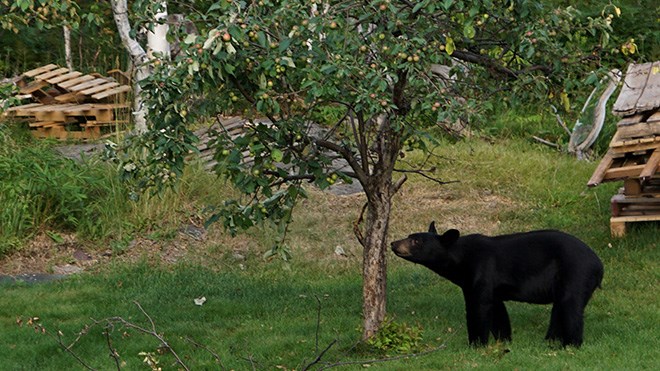The province's announcement it will reinstate the spring bear hunt across the province, through five-year pilot program, should be an economic boon for the north, but won't do much to address the nuisance bear issue that plagued Sudbury and other communities this past summer, says an analyst with the Northern Policy Institute.
“Hunting is certainly an integral part of black bear management, but in terms of reducing human-bear conflicts government studies and other scientific studies have shown there is no correlation between the spring bear hunt and the reduction of human-bear conflicts,” said Mike Commito, who wrote a paper in August advocating the spring bear hunt be expanded, based mainly on economic grounds.
The province canceled the spring bear hunt in 1999 after years of protests that focused on the ethics of baiting, and concern over orphaned cubs due to the illegal shooting of lactating sows.
But the province reinstated the spring hunt on a trial basis in eight of Ontario's 88 wildlife management units in 2014 and 2015. Commito said the new expansion represents a good step that reflects many of the recommendations he made in August.
Before the spring bear hunt was canceled in 1999 it generated an estimated $30 million in economic activity from local and visiting hunters each season – in conjunction with the fall hunt. The expanded spring hunt will once again allow non-residents to participate in the hunt, as long as they do so through a recognized outfitter.
But it could take several years before non-resident bear hunters – primarily from the United States – return in large numbers.
“When you lose a market you're not necessarily going to recapture it with the same numbers as in the past,” Commito said.
As for reducing human-bear encounters in cities like Sudbury, Commito said reducing bears' access to garbage in communities has proven to be a more effective form of prevention than the spring hunt.
He said Sudbury's new bylaw, that will require people to wait until morning before they put their garbage out to the curb for pickup, is a “positive step forward.”
But Mark Ryckman, a senior wildlife biologist with the Ontario Federation of Anglers and Hunters, said the spring hunt is an important tool to prevent human-bear encounters, but it must be used in conjunction with other initiatives.
“Hunting and the Bear Wise program and associated bylaws with respect to garbage, those are all individual management tools that can be used in concert to minimize human-bear conflicts,” he said.
Ryckman said he does not expect a big influx in new bear hunters with the expanded spring bear hunt, but many hunters – who will mostly receive only one bear tag for the season – could switch from the fall hunt to the spring.
The Ontario Federation of Anglers and Hunters has advocated for the full reinstatement of the spring hunt since it was canceled, and Ryckman said Friday's news was a “very positive step in the right direction.”
But he said the federation is still waiting to hear details around baiting rules, and how those could impact its members.
Join Sudbury.com+
- Messages
- Post a Listing
- Your Listings
- Your Profile
- Your Subscriptions
- Your Likes
- Your Business
- Support Local News
- Payment History
Sudbury.com+ members
Already a +member?
Not a +member?
Sign up for a Sudbury.com+ account for instant access to upcoming contests, local offers, auctions and so much more.
